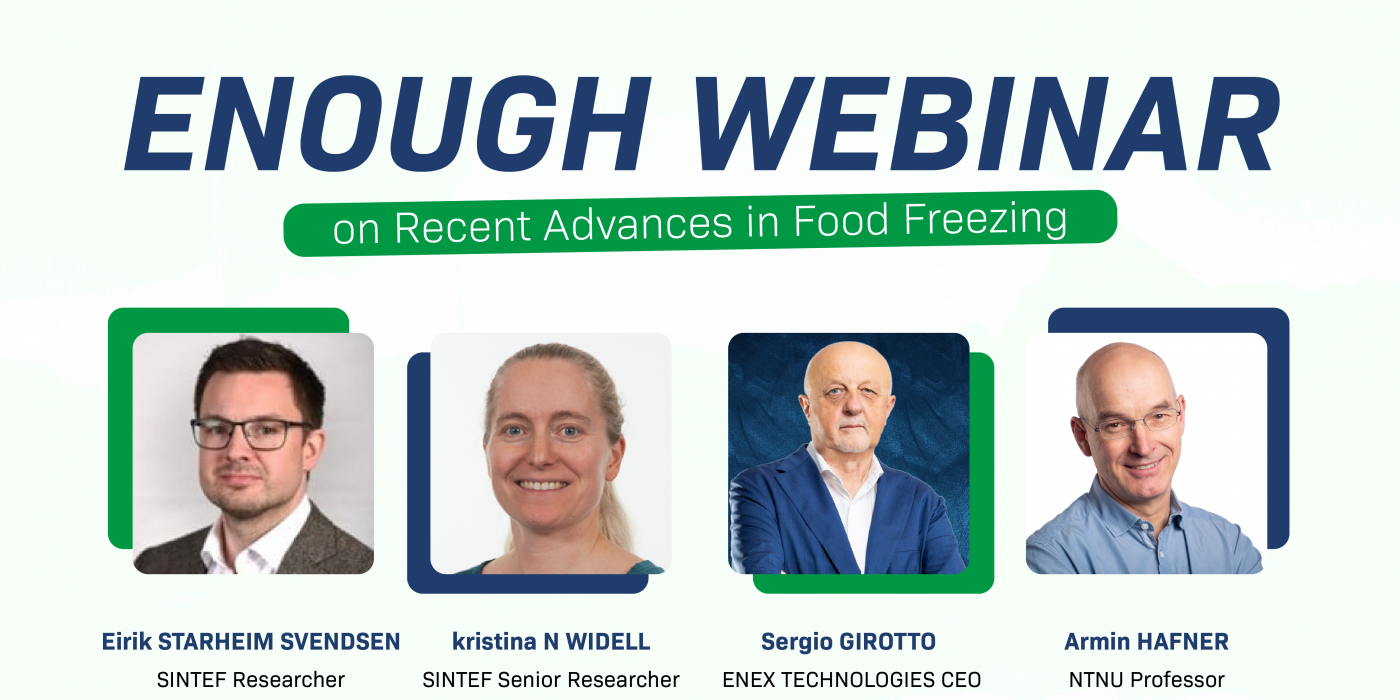On May 22, science and industry experts took part in the ENOUGH Webinar on recent advances in food freezing, exploring various ways to enhance sustainability in thermal processes.
On May 22, 2025, the ENOUGH project hosted a one-hour webinar focused on innovative food freezing technologies and their potential to reduce greenhouse gas (GHG) emissions across the food value chain. The event brought together experts from both research and industry, who shared recent results from ongoing demonstration activities and explored ways to enhance sustainability in thermal processes.
Kristina Norme Widell from SINTEF Ocean opened the webinar by presenting the ENOUGH project (2021–2025), which brings together 30 partners from 12 countries to reduce GHG emissions across the food supply chain. The project explores both technical and non-technical solutions at 21 demo sites, focusing on fossil-free systems, natural refrigerants, and energy efficiency.
Eirik Starheim Svendsen (SINTEF) presented trials on brine freezing of mackerel at -14°C under ENOUGH DEMO 15. This revived method could save up to 40% in energy but faces challenges like salt uptake and product quality.
Sergio Girotto (ENEX Technologies) introduced CO₂ blast freezers operating down to -55°C, currently undergoing reliability tests.
Professor Armin Hafner (NTNU) shared promising results from trials of a CO₂ plate freezer at -50°C, designed to preserve food quality during rapid freezing.
The session ended with a Q&A, where participants discussed the visual impact of freezing methods on fish, noting minimal changes in mackerel but some in salmon.
Overall, the webinar highlighted a range of complementary solutions to improve energy efficiency and environmental performance in food freezing processes.









